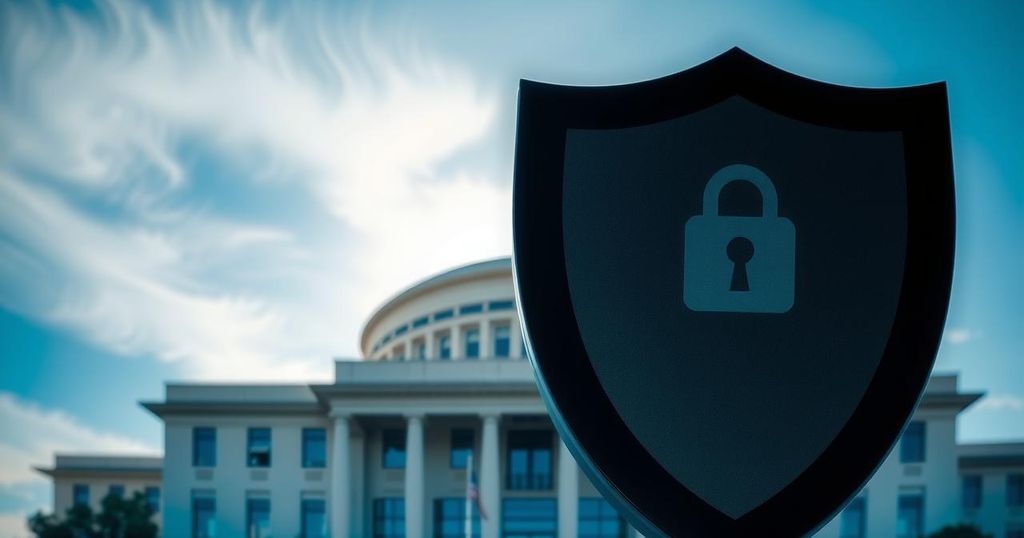Ecuador’s President Daniel Noboa seeks re-election amid a crime crisis, daily blackouts, and international scrutiny. Despite these challenges, he enjoys over 50 percent approval due to his tough crime policies, with Luisa Gonzalez as his main rival. Noboa’s inexperience and controversial governance raise concerns about human rights and authoritarian tendencies. His outreach to younger voters is critical, as he promises to wage war against entrenched political systems.
President Daniel Noboa is seeking re-election amid Ecuador’s ongoing challenges with crime, power outages, and government crises. Despite facing international criticism and human rights concerns, he maintains a solid approval rating above 50 percent, largely attributed to his tough stance on crime. His main competitor, Luisa Gonzalez, failed to present a significant challenge as Noboa capitalizes on public support from recent events, including a series of violent crimes that have underscored the need for stringent security measures.
Noboa’s ascent to the presidency came after his predecessor dissolved the National Assembly in May 2023 to avoid impeachment. This unprecedented move cut short Noboa’s initial legislative term but propelled him into the presidential race, where he formed alliances with centrist and conservative parties. Ultimately, he defeated Gonzalez in a close runoff, becoming the youngest president in Ecuador’s history at the age of 35. However, his inexperience as a leader has raised concerns among political experts.
Under Noboa, Ecuador has seen soaring crime rates and a deteriorating economy, exacerbated by the COVID-19 pandemic. The country now holds the highest homicide rate in South America, with a particularly tragic event being the assassination of presidential candidate Fernando Villavicencio. Noboa’s administration has struggled to contain escalating violence, as evidenced by high-profile gang-related incidents and prison riots shortly after he took office.
Noboa’s response to the rampant crime includes declaring an all-out war against gangs, supported by emergency measures and a call for increased military involvement in law enforcement. While the homicide rate reportedly fell in early 2024, it remains significantly higher than pre-pandemic levels. Additionally, human rights violations have raised serious concerns, as security forces have been implicated in extrajudicial killings and disappearances, undermining public trust in Noboa’s governance.
Controversy has followed Noboa, particularly after a police raid on the Mexican embassy in Quito. This incident strained relations with Mexico and raised international alarms regarding his governance style, perceived as authoritarian. Speculation about Noboa’s seemingly erratic decision-making intensified, including his attempts to bypass constitutional requirements for his re-election campaign.
Despite facing scrutiny, Noboa is campaigning for a full legislative term by promising to combat “old politics.” His campaign aims to resonate with younger voters, a demographic that forms a significant portion of the electorate in Ecuador. His informal image, including T-shirt advertisements, attempts to connect with the youth, as many see him as a refreshing leader.
However, political analysts warn that if Noboa fails to address pressing national issues, his initial popularity may erode. The coming election will determine whether he can transform his brief tenure marked by crisis into a legacy of effective governance, rather than being seen solely as an inexperienced leader dealing with turmoil.
Ecuador is grappling with a severe crime wave, largely attributed to increasing drug trafficking and the highest homicide rates in South America. President Daniel Noboa’s administration has been characterized by both significant challenges, including daily power outages and violent riots, and a precarious political environment following his unexpected rise to power. His governing approach, especially in terms of security, has been contentious and raised concerns over human rights abuses.
President Daniel Noboa enters the election with notable challenges and a mixed record of governance. His tough approach to crime may have solidified his popularity, especially among younger voters, yet pressing issues such as economic downturns and human rights violations weigh heavily on his administration. The outcome of this election could have lasting implications for both Noboa’s political career and Ecuador’s future.
Original Source: www.aljazeera.com






